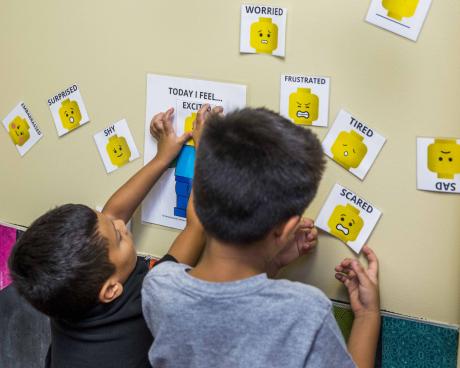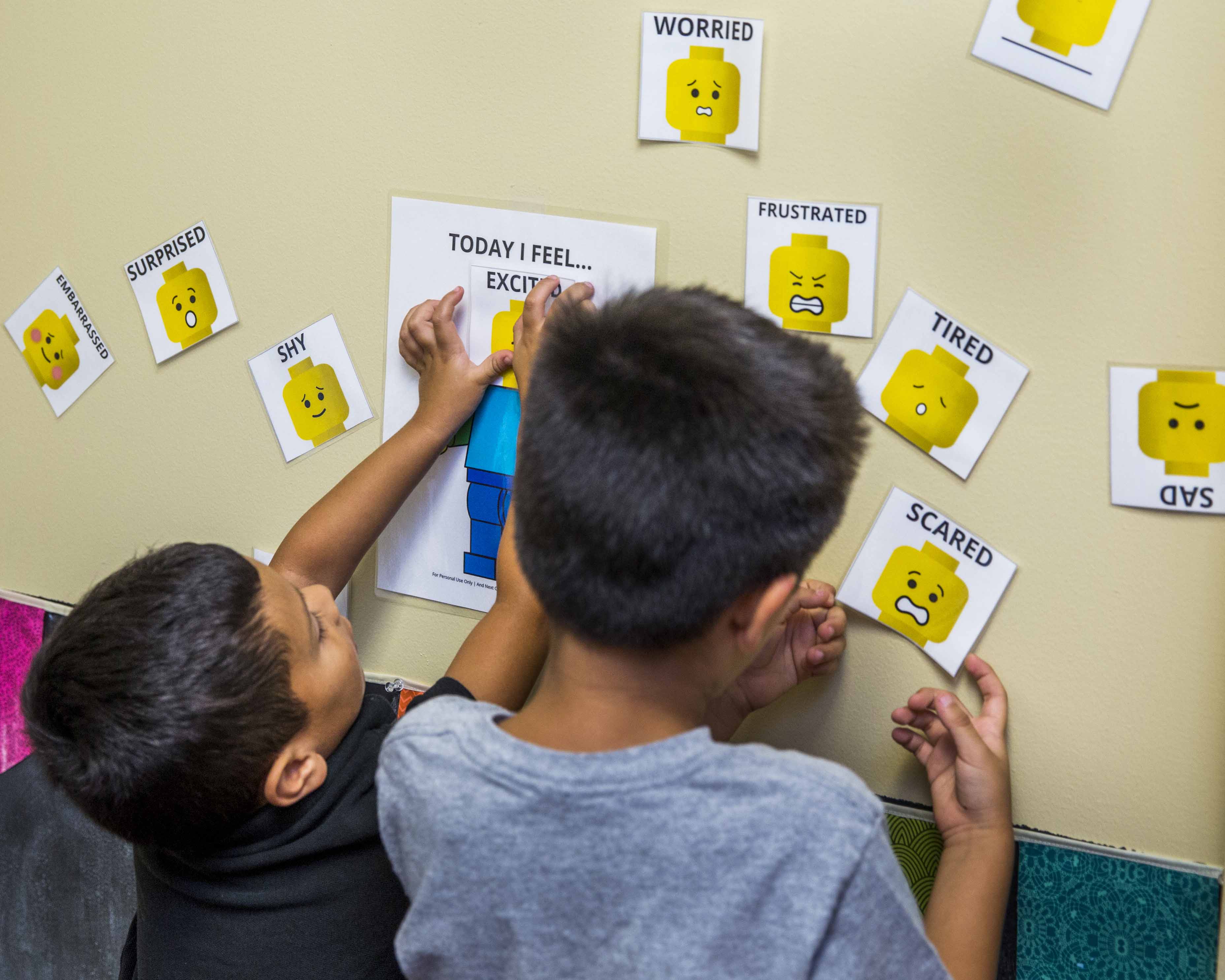Summer Research Fellowships give students a chance to grow


The opportunity to conduct research under the guidance of an FSU College of Medicine faculty mentor, especially on a topic of their own choosing, held special appeal for a group of students entering their second year of medical school.
Some had undergraduate research experience and wanted to expand their knowledge and skill set. Others saw an opportunity to try something new – to explore the link between research and patient care.
Twenty-two students from the M.D. Class of 2025 were awarded Summer Research Fellowships this year based on proposals they wrote and submitted in February. The fellowships come with a $4,000 stipend. Since the program’s creation, more than 300 fellowships have been awarded.
The topics are as diverse as the students who are researching them.
“There’s a lot of research out there about the digital divide, but not so much about how that gap affects health care overall,” medical student Kenneth Romero said. “I was curious about the difference among demographics, not just with older people, but people of different circumstances and socio-economic situations.”
“Vaccination rates are being questioned every day,” Romero said, “so we want to see where the gap is.
For Romero, who grew up in the Fort Lauderdale area, the topic is personal and important far beyond the vaccination aspect.
“My entire family is in Colombia,” he said. “We try to Facetime with my grandma, and she has no idea what to do. I see this as a good way to start making the connection between technology and patient care. This is a great way to quantify it, and hopefully learn how important it is to teach patients to use technology.”
DanTasia Welch has a personal connection to her topic, as well. She’s researching the effect of breastfeeding on postpartum depression (PPD) in non-Hispanic Black women.
“PPD tends to be higher in Black women than in women of other races, and the rates of breastfeeding tend to be lower,” Welch said. “Research has shown that breastfeeding releases the so-called ‘feel good’ hormones like oxytocin and reduces the levels of stress hormones such as cortisol.”
So why aren’t more Black women breastfeeding? Welch believes the PPD rates are higher and the breastfeeding rates are lower among Black women because they’re hearing only the horror stories about breastfeeding – and because they don’t have the support they need at home or at work.
Her mentor, Assistant Professor of Family Medicine Shermeeka Hogans-Mathews, praises Welch’s “teachable spirit.”
“I enjoy teaching her to perform research and how to navigate the process,” Hogans-Mathews said. “She’s a pretty impressive medical student.”
Her goals are two-fold as she mentors Welch through this research project: First, she wants to shine more light on mental health issues and the needs of Black mothers as an underserved population and get them the support they need. Second, she wants to open Welch’s mind to all the opportunities she has in the field of medicine.
“There is a huge mental health stigma in the Black community, and we have to do something about that,” Hogans-Mathews said. “And it’s important to me, as a person of color, to mentor and increase the representation of people of color in academic medicine.”
Suzanne Baker, assistant dean for graduate programs and medical student research, said the Summer Research Fellowship Program helps students develop critical thinking skills.
“It’s a stepping-stone to opening up options,” she said. “A lot of the students who participate in the program end up presenting their work at conferences.”
Hogans-Mathews is hopeful Welch will be invited to present her research at next year’s conference of the Society of Teachers of Family Medicine in New Orleans. Welch submitted a proposal to present, and the Department of Family Medicine nominated her for a scholarship to cover her expenses.
Sean Gabany, another of the summer research fellows, is immersed in his project, which examines the efficacy of pediatric interventions in children who have had adverse childhood experiences (ACE). He is spending the summer at the College of Medicine’s Immokalee Health Education Site. His mentor, Jordan Montgomery, is on the research faculty there.
“We’ve gotten really good at screening children for ACEs, whether it’s parental separation because of arrest or deportation, or physical or emotional neglect or abuse, or simply the instability of their environment,” Gabany said. “We’ve done less research on what interventions are the most effective. The American Academy of Pediatrics wants to get providers more comfortable in identifying ACEs and intervening.”
The work is needed, he said: “An estimated 61% of adults identify as having had an adverse childhood experience.” His research will study how the symptoms of ACEs change after an intervention. Some children might need only a conversation offering coping strategies; others might need monthly visits with a psychologist.
While Romero, Welch and Gabany are analyzing data in their research, Madison Patrick is using mice to study the effects of electronic cigarettes on the offspring of users. Working with mentor Pradeep Bhide, professor, eminent scholar and director of the Center for Brain Repair, Patrick will build on previous research in the Bhide lab regarding the so-called safety of e-cigarettes.
“During my time in undergraduate school, you couldn’t throw a rock without hitting someone with a Juul” brand of e-cigarette, she said. “There’s not a lot of research being published yet on the long-term effects. It’s of interest to me because of my age group.”
Specifically, the research will look at the effects on behavior of subsequent generations of mice, as well as the potential effect of harmful chemicals on the epigenome of spermatozoa. The project will continue beyond the summer, examining the children and grandchildren of the first set of male mice whose levels of nicotine and other elements will be analyzed. Patrick wants to see whether the offspring will show evidence of effects, even if they were never exposed directly.
“There’s a lot of great research going on here at the College of Medicine,” she said, “and I want to learn all that I can.”
Contact Audrey Post at audrey.post@med.fsu.edu
Photos by Colin Hackley for the FSU College of Medicine
Full List of FSU College of Medicine 2022 Summer Research Fellowship Awards
(listed alphabetically by participating medical student)
Samuel Boatright, “PER1/2 point mutations in the mouse model.”
Mentor: Choogon Lee
Claudia Cruz, “Efficacy of Gene Therapy in Arrhythmogenic Cardiomyopathy (ACM).”
Mentor: Stephen Chelko and Judy Delp (co-mentors)
Joshua Davis, “Depression in a Tallahassee community clinic throughout the covid-19 pandemic.”
Mentor: Antonio Terracciano
Madikay Faal, “Adaptations of the cardiovascular system that occur in response to aerobic exercise training across the lifespan.”
Mentor: Judy Delp
Katarina Forsthoefel, “Comparing the 30-day outcome of elective PCI in patients performed during the COVID-19 outbreak and the impact of bed availability.”
Mentor: Noel Thomas
Sean Gabany, “Efficacy of Pediatric Interventions in Children Screened Positively for Adverse Childhood Experiences.”
Mentor: Jordan Montgomery
Cameron Gerhold, “A Comparison of Transosseous Sutures Versus Knotless Suture Anchors for Quadriceps Tendon Repairs in the Adult Population.”
Mentor: Hector Mejia
Phasin Gonzalez, “The Role of mutated Huntington Proteins in Autophagy.”
Mentor: Yanchang Wang
Sarah Hegleh, “Using Inertial Gait Data to Predict Freezing of Gait Episodes in Parkinsonism.”
Mentor: Charles Maitland
Alfredo Kiernan, “Does resiliency reduce substance use in patients being treated for chronic pain?”
Mentor: Gilbert Chandler
Liam McLoughlin, “Surgeon-Placed Adductor Canal Block vs. Anesthesiologist-Administered Femoral Nerve Block in Total Knee Arthroplasty”
Mentor: Andrew Wong
Kaniya Neymour, “Perinatal behavioral health conditions.”
Mentor: Heather Flynn
John Parker, “An Experimental Study on the Localization and Composition of Mutant N-Methyl-D-Aspartate Receptors (NMDAR) in Melanomas”
Mentor: Akash Gunjan
Madison Patrick, “Effects of E-Cigarettes on Behavior and Germ Cells.”
Mentor: Pradeep Bhide
Delaney Rahl, “Are We Really Stopping the Bleed? Utilizing POCUS to evaluate medical personnel tourniquet application.”
Mentor: Jesus Roa
Shane Rambo, “Understanding the effects of the SARS-CoV-2 pandemic on youth living with HIV.”
Mentor: Sylvia Naar
Kenneth Romero, “The Internet: Can its Access Improve Covid-19 vaccination rates in the state of Florida?”
Aanchal Shah, “Analysis of fine-art photography to enhance the observational skills of first year medical students: A Randomized Controlled Study.”
Mentor: Stephen Richardson
Raymond VerVoort, “Improving muscle function in peripheral artery disease: a role for muscle stretching.”
Mentor: Judy Delp
Dayita Wable, “Development of an Engineered Cell that Secretes Adiponectin for a Cell-based Therapeutic Intended to Prevent Peripheral Artery Disease.”
Mentor: Cesar Rodriguez
DanTasia Welch, “The Effect of Breastfeeding on Postpartum Depression Risk in Black Women.”
Mentor: Shermeeka Hogans-Mathews
Sean Wimberly, “Factors contributing to missed appointments in an underserved primary care setting and mitigation opportunities.”
Mentor: Stephen Quintero

